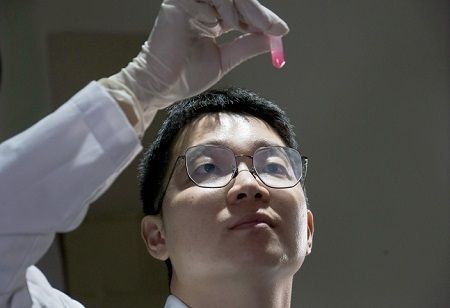A team led by Nanyang Technological University, Singapore (NTU Singapore), has developed miniature droplets that, upon activation by laser light, can identify viral protein biomarkers indicating specific diseases. These microdroplets, roughly one-third the width of a human hair, hold potential for bloodstream travel, reaching various body parts to detect cell-released particles called exosomes, serving as disease indicators.
Nanyang Assistant Professor Chen Yu-Cheng from NTU's School of Electrical and Electronic Engineering, along with research fellow Dr. Fang Guocheng, spearheaded the research team. They propose that these microdroplets could offer a more precise and effective alternative to photodynamic therapy, employing light-activated drug carriers to eliminate abnormal cells.
The researchers utilized liquid crystal to fashion microdroplets, subsequently coating them with diverse antibodies responsive to different virus-shed proteins, thus transforming them into disease sensors. Acting as a focus point for laser light, the microdroplet intensifies laser energy and light upon entry, as it reflects and bounces within the droplet before exiting. This amplification generates a more robust energy signal emitted from the droplet, facilitating more accurate and easily detectable signals.
Upon encountering a protein that reacts with one of its attached antibodies, indicating potential disease or infection, the microdroplet undergoes a wavelength shift in the reflected light. By measuring this wavelength alteration upon exit, the researchers successfully detected neurological disorders, genetic ailments, and cancerous cells in laboratory trials.
Assistant Professor Chen highlighted the advantages of using lasers, emphasizing their ability to magnify subtle biological changes, especially in scattered or deep tissue environments. He noted lasers' attributes such as strong coherence, intensity, and high signal-to-noise ratio, all contributing to enhanced detection precision.
In summary, NTU Singapore's research team has innovated microdroplets activated by laser light, capable of detecting disease biomarkers. This technology, with its potential for precise and effective disease detection, marks a significant advancement in medical diagnostics, offering promise for improved healthcare outcomes.

